Posts Tagged ‘Kachin’ (94 found)
New Special Rapporteur, Familiar Human Rights Abuses
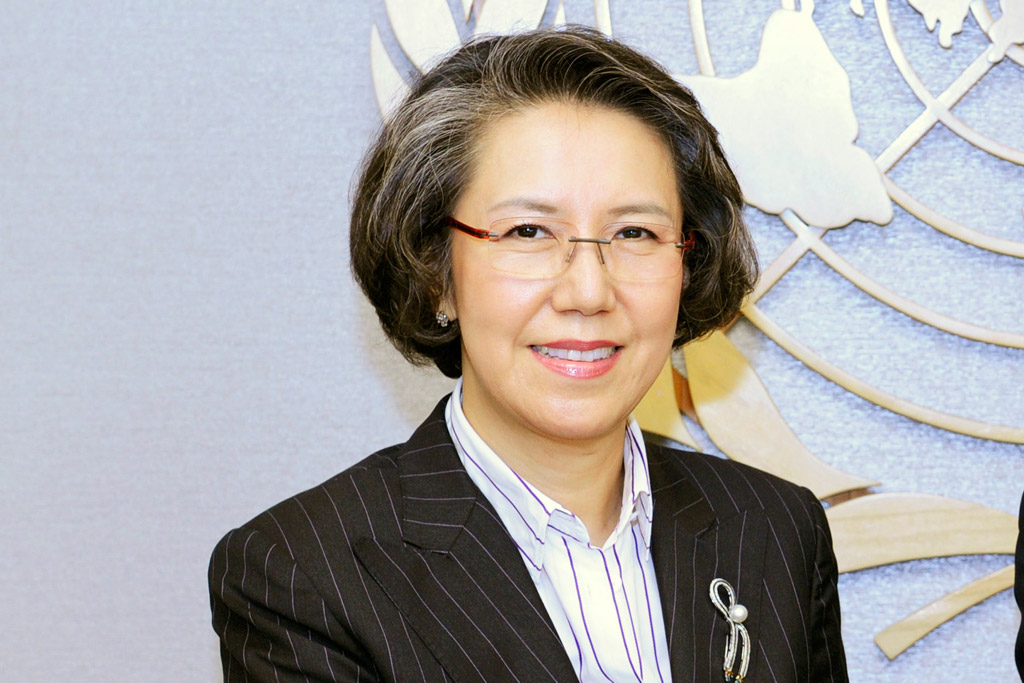 The new Special Rapporteur on the situation of human rights in Burma, Ms. Yang Hee Lee, concluded her first visit to the country on 27 November, and unsurprisingly, found the human rights situation troubling, warning of the potential of backtracking on initial reforms, an analysis that resonates with many Burma followers. She outlined her initial findings at Rangoon airport in a statement just as she finished her mission, highlighting the shrinking of democratic space, the ongoing religious violence and discrimination, the deteriorating humanitarian conditions for internally displaced persons (IDPs) – especially Muslims – in Arakan State, the severe human rights abuses in Kachin State, the urgent necessity for legislative reform and the rule of law, the lack of involvement of women in both the peace process and governance, the exclusion of local people in large scale development projects and the impact of such projects on vulnerable communities, and the continuing incarceration of political activists, among other issues.
The new Special Rapporteur on the situation of human rights in Burma, Ms. Yang Hee Lee, concluded her first visit to the country on 27 November, and unsurprisingly, found the human rights situation troubling, warning of the potential of backtracking on initial reforms, an analysis that resonates with many Burma followers. She outlined her initial findings at Rangoon airport in a statement just as she finished her mission, highlighting the shrinking of democratic space, the ongoing religious violence and discrimination, the deteriorating humanitarian conditions for internally displaced persons (IDPs) – especially Muslims – in Arakan State, the severe human rights abuses in Kachin State, the urgent necessity for legislative reform and the rule of law, the lack of involvement of women in both the peace process and governance, the exclusion of local people in large scale development projects and the impact of such projects on vulnerable communities, and the continuing incarceration of political activists, among other issues.
We welcome Ms. Lee’s open and honest discussion of the term “Rohingya” and her pledge to be guided by international human rights law as regards the use of this term. This was despite the insistence of government officials not to use the word “Rohingya” throughout her trip to Arakan State. On the basis of this principled stance, we are reassured that Ms. Lee will not flinch from using the term when appropriate in the future. After visiting two camps for IDPs, one for Arakan Buddhists and one for Rohingya Muslims, Ms. Lee was troubled by both the terrible conditions in the camps and the lack of humanitarian access that is resulting in people dying due to insufficient medical assistance. She also acknowledged that this situation is “undeniably worse” in the camp for Rohingya. While she did not explicitly state that this is a situation engineered and maintained by the authorities, it is obvious that the unequal treatment of Buddhist and Muslim IDPs is a deliberate policy by the government that further punishes the Rohingya simply due to their ethnicity.
• • •Statement of the Special Rapporteur on the Situation of Human Rights in Myanmar
Introduction:
Good evening and thank you all for coming today. I have just concluded my first official ten- day mission as Special Rapporteur on the situation of human rights in Myanmar. The objective of my visit was to assess the human rights situation in Myanmar through a better understanding of the realities on the ground. Accordingly, I sought to engage constructively with a broad spectrum of stakeholders, including Government officials, political, religious and community leaders, civil society representatives, as well as victims of human rights violations and members of the international community. I was pleased to have had a frank and open exchange of views on a range of matters related to my mandate. And I am grateful that many were so forthcoming in their views on sensitive issues […]
• • •Navigating Paths to Justice in Myanmar’s Transition
Since President Thein Sein and his government took office in 2011, Myanmar’s transition has unfolded at a pace that has surprised many and earned the acclaim of western governments, financial institutions, and private-sector investment analysts.1 The Burmese population of approximately 60 million has endured more than a half-century of military dictatorship, armed conflict, economic dysfunction, and political repression.2 A meaningful transformation into a peaceful society that enjoys economic development and functions democratically now seems plausible, though it is far from guaranteed. Ultimately, the blanket immunity afforded by the 2008 Constitution shields the acts attributable to prior regimes from any form of accountability.3 Whether the reform process will evolve to include measures that address the massive and systematic injustices of the past remains less certain.
• • •Brang Yung Detention Illegal Says United Nations
The United Nations Working Group on Arbitrary Detention has issued a ruling that the detention of the ethnic Kachin farmer Brang Yung is illegal and called for his immediate release, and for adequate reparation.
Brang Yung was arrested in June 2012 by the military-backed government in Burma. He was charged under Article 17/1 of the Unlawful Association Act, and he is serving a 21 year prison sentence in Myitkyina Prison […]
• • •Myanmar’s Rosewood Crisis
Extremely rapid growth in Chinese imports of ‘redwood’, ‘rosewoods’ or ‘Hongmu’ timbers from Myanmar in the past two years is directly driving increased illegal and unsustainable logging, posing a real threat to governance, the rule of law and the viability Myanmar’s dwindling forests.
EIA research shows that, based on current trends, the two most targeted Hongmu species in Myanmar – tamalan and padauk – could be logged to commercial extinction in as little as three years.
With financial rewards for illegal loggers and timber smugglers dwarfing traditional incomes, and evidence of corruption facilitating illegal business, Myanmar’s domestic controls will be unable to effectively stem illegal trade.
Myanmar urgently needs to engender legal reciprocity from strategic timber trade partners, particularly China, to ensure Myanmar’s forestry and trade laws are respected along its land border […]
• • •State of the Word’s Minorities and Indigenous Peoples 2014
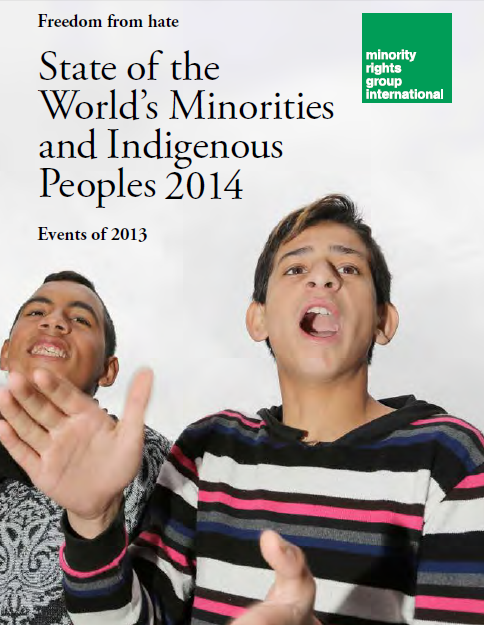 Hate crime towards minorities and indigenous peoples is a daily reality across Asia but is often ignored by the governments of the region, Minority Rights Group International (MRG) warns in its annual report. This year’s flagship report, State of the World’s Minorities and Indigenous Peoples 2014, is themed around ‘Freedom from Hate’ and shows that a worrying trend of vilification and hostility towards minorities and indigenous peoples has spread across the region.
Hate crime towards minorities and indigenous peoples is a daily reality across Asia but is often ignored by the governments of the region, Minority Rights Group International (MRG) warns in its annual report. This year’s flagship report, State of the World’s Minorities and Indigenous Peoples 2014, is themed around ‘Freedom from Hate’ and shows that a worrying trend of vilification and hostility towards minorities and indigenous peoples has spread across the region.
A key aspect of hate crime and hate speech is its invisibility, especially when governments or societies overlook or tolerate entrenched patterns of discrimination against particular communities, says MRG. Across Asia, governments have failed to provide adequate protection to its minority and indigenous populations.
“Hate crimes have been able to flourish in Asia largely as a result of the complicity or support of politicians who stand to gain from the persecution of minorities,” says Mark Lattimer, MRG’s Executive Director. “Hate speech goes unchallenged and crimes are often under-acknowledged and under-reported, enabling perpetrators to operate with impunity.” […]
• • •Now is the Time to Act, Sexual Violence Must End in Burma
 On 10 June 2014, the Burma government prepared to sign the ‘Declaration of Commitment to End Sexual Violence in Conflict’ at the end of a three-day global summit, which aimed to “shatter the culture of impunity for sexual violence in conflict.” On the same day, a woman was brutally beaten by a Burma Army soldier during an attempted rape in Rezua, Chin State. The eyewitnesses who spoke to the Chin Human Rights Organization said that the women was held down by the soldier, while he repeatedly beat her. She was rushed to the hospital and is fortunately now in recovery.
On 10 June 2014, the Burma government prepared to sign the ‘Declaration of Commitment to End Sexual Violence in Conflict’ at the end of a three-day global summit, which aimed to “shatter the culture of impunity for sexual violence in conflict.” On the same day, a woman was brutally beaten by a Burma Army soldier during an attempted rape in Rezua, Chin State. The eyewitnesses who spoke to the Chin Human Rights Organization said that the women was held down by the soldier, while he repeatedly beat her. She was rushed to the hospital and is fortunately now in recovery.
However, this brutal event has lead to a series of demonstrations in Rezua and Matupi, Chin State this week, calling for an end to sexual violence. According to The Irrawaddy, protesters held placards that stated: “Stop raping; We are humans, not animals. We are humans, not property.” Though the organizers requested to hold the rally, the local police denied their applications and they have been arrested for staging a peaceful demonstration without permission, ironically under the Peaceful Assembly and Peaceful Procession Law.
This recent case of attempted rape is not a one-off incident of a rogue Burma Army soldier. A report produced by Women’s League of Burma (WLB) ‘Same Patterns, Same Impunity’ demonstrates how the sexual violence inflicted by the Burma Army soldiers are systematic in nature and a part of a wider structural system of politicizing women’s bodies and abusing them as instruments of war and oppression. The data collected by WLB and its members found that since the 2010 elections, over 100 cases of rape has been documented, of which 47 were brutal gang rapes and victims were as young as eight years old. Most of the documented cases were linked to Kachin and Northern Shan State where military offensives have been taking place since 2011, indicating that rape and sexual violence is in fact, used as a weapon in an attempt to demoralize the ethnic communities and to assert dominance over them […]
• • •Calls for DFID Burma Census Inquiry Top 1,000
More than a thousand people have written to Justine Greening, Secretary of State for International Development, calling for an inquiry into why the Department for International Development (DFID) spent 10m on Burma’s disastrous census earlier this year. DFID has not yet responded to these calls […]
• • •


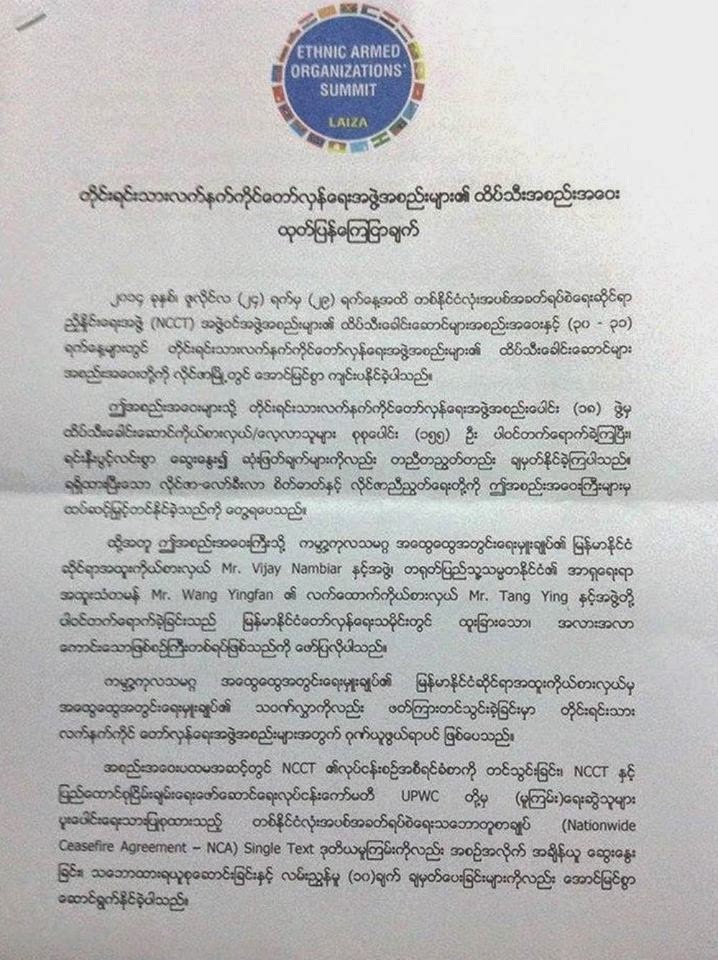
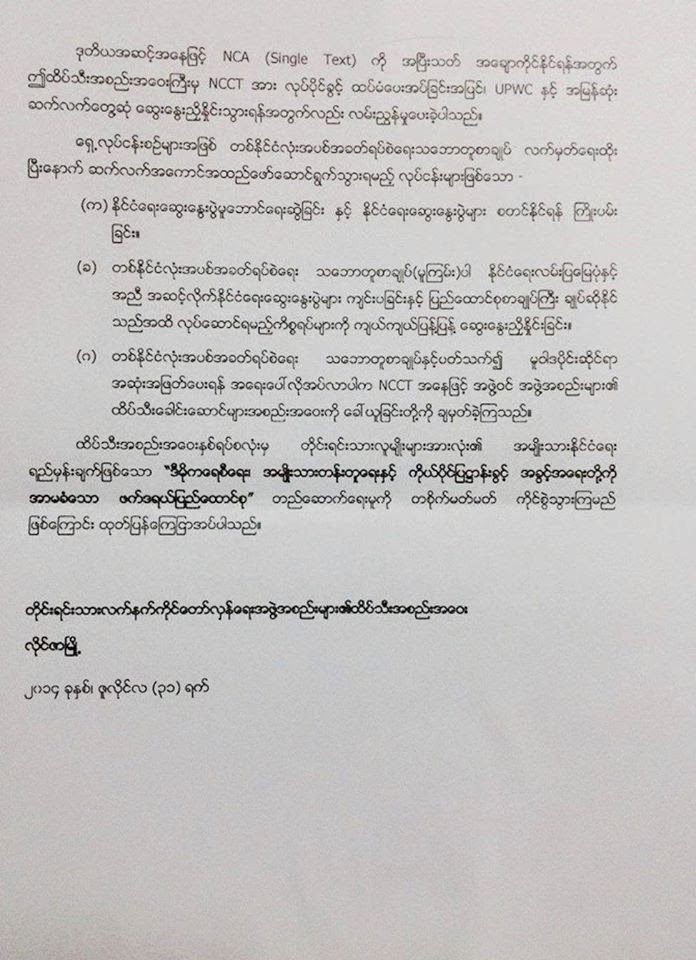
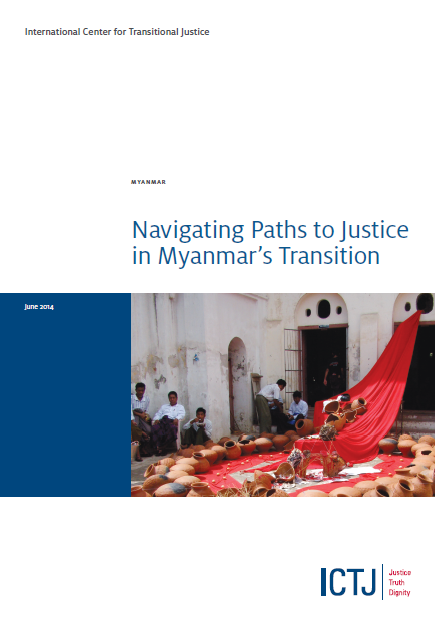
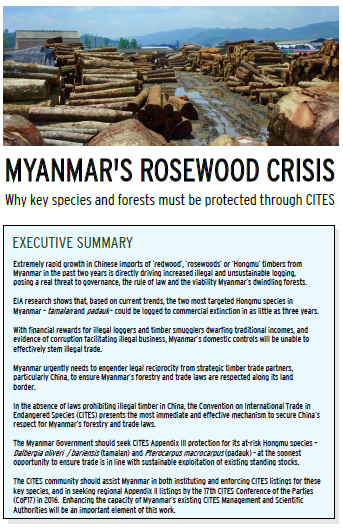








 All posts
All posts